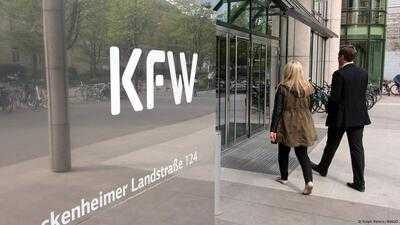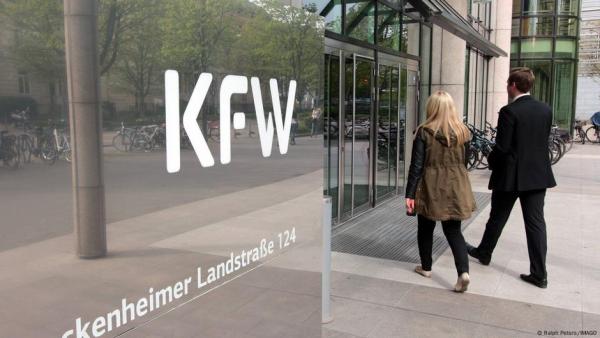

The government's development bank is accused of backing harmful projects in emerging markets. Instead of uplifting communities, a new report says investments fail to protect human rights and silence those who speak out.You've probably never heard of KfW. It's a development bank — the world's largest — backed by the German state and established to funds projects around the world ranging from roads in Africa to water systems in Asia. But what happens when projects backed by the lender displace a village, pollute a river, or silence dissent? A new report on KfW Bank’s human rights record says these aren't just hypotheticals, they're real risks and they're not being handled well enough. Known by the slogan "Responsible Banking," KfW is backed by billions in public money. So those failures aren’t seen as just tragic; they're paid for by German taxpayers. What is KfW Accused Of? Compiled by the Coalition for Human Rights in Development — a grouping of civil society organizations — the report raises concerns about how KfW's overseas projects are affecting vulnerable communities. The coalition, which includes Urgewald, a German-based watchdog group known to track the social and environmental impacts of global finance, took aim at KfW's slogan, accusing the lender of "irresponsible banking" and causing "hidden harms." Development banks like KfW try to highlight how they are shaping futures in emerging economies. But the report alleges that infrastructure projects funded by the lender led to forced relocations of Indigenous communities in Indonesia, Mexico and elsewhere. These took place without adequate engagement with locals or compensation. The projects are also alleged to have caused environmental harm. The paper's authors have singled out biomass and hydropower projects in eastern and southern Europe, for example, where the projects may be contributing to air pollution and water degradation. with little transparency or accountability. Marc Fodor, campaign coordinator at the Coalition for Human Rights in Development thinks for KfW environmental and social issues are "just an add-on" to business deals. Speaking with DW, Fodor said the report shows that many projects backed by KfW were launched without prior informed consent from local populations, violating international standards on Indigenous rights and participatory development. Fodor also noted that KfW's own investigation into serious reprisals in Indonesia, where Indigenous people were reportedly arrested and beaten, concluded only that "free, prior and informed consent had not been respected." "It wasn’t just that people weren’t consulted. It was much more serious than that," he said. Cultural sensitivities ignored Another example cited in the report was in Kenya, where Maasai communities were relocated as part of development efforts linked to geothermal expansion and infrastructure projects in the Kedong Ranch area about 93 kilometers (58 miles) northwest of Nairobi. This land has long been contested, with Maasai groups claiming ancestral ownership. Fodor argues the Maasai were then placed in "culturally inappropriate" new homes which didn’t accommodate traditional practices and led to isolation and breakdown of community ties. Indonesia is another example mention in the report. Members of the Pocoleok Indigenous community, opposing the expansion of a geothermal power plant, financed by KfW, faced violent reprisals, including intimidation and physical abuse, after voicing concerns about environmental and cultural harm. Apart from naming controversial KfW projects, the report criticized the lender's complaints procedure as being "slow, opaque and inaccessible to many affected people," adding that the lender was failing to "prevent, address and remedy reprisals against those raising concerns" around the impacts of its projects. During one complaint about a project in Uganda, KfW initially denied its involvement until a community member produced a document bearing the bank’s logo. The report doesn’t accuse KfW of deliberate wrongdoing, but it does suggest that the bank’s due diligence and oversight are falling short and are often unclear. "It's a maze… I was unable to understand what the policies are — even though that’s my bread and butter," Fodor told DW. What is the coalition urging KfW to do? To move forward, the rights groups say KfW must go beyond procedural reforms and embrace structural change. That means establishing an independent accountability mechanism across all its international operations with clear human rights safeguards. Additionally, they are calling for proactive policies to prevent reprisals, public access to project documents and meaningful consultation with affected communities before any financing is approved. Surprisingly, many other development banks have already taken steps in this direction. The World Bank and the Asian Development Bank, for example, publish detailed environmental and social assessments online. The European Investment Bank (EIB) — the EU's international development finance lender— has a centralized complaints office with partial independence. Compared to these institutions, KfW relies on partner policies and scattered grievance systems, the report criticized, which leave gaps that can allow harm to go unchecked. What does KfW have to say? In response to the report, KfW issued a statement defending its practices. It says that for all three international business areas of the KfW respect for human rights and responsible management of environmental and social risks are "a matter of course." "All financing by KfW and its subsidiaries is subject to sustainability guidelines. These require procedures and standards for environmental and social impact assessments for all financed projects," the statement added. KfW also emphasizes that it employs more than 50 specialists and applies internationally recognized standards such as those of the World Bank, IFC and the Equator Principles — global guidelines banks use to avoid funding projects that harm people or the environment. Furthermore, in cases of serious potential harm to Indigenous communities, those communities are included in the process. "If risks are deemed unacceptable, financing is refused," the statement concluded. Edited by: Uwe Hessler